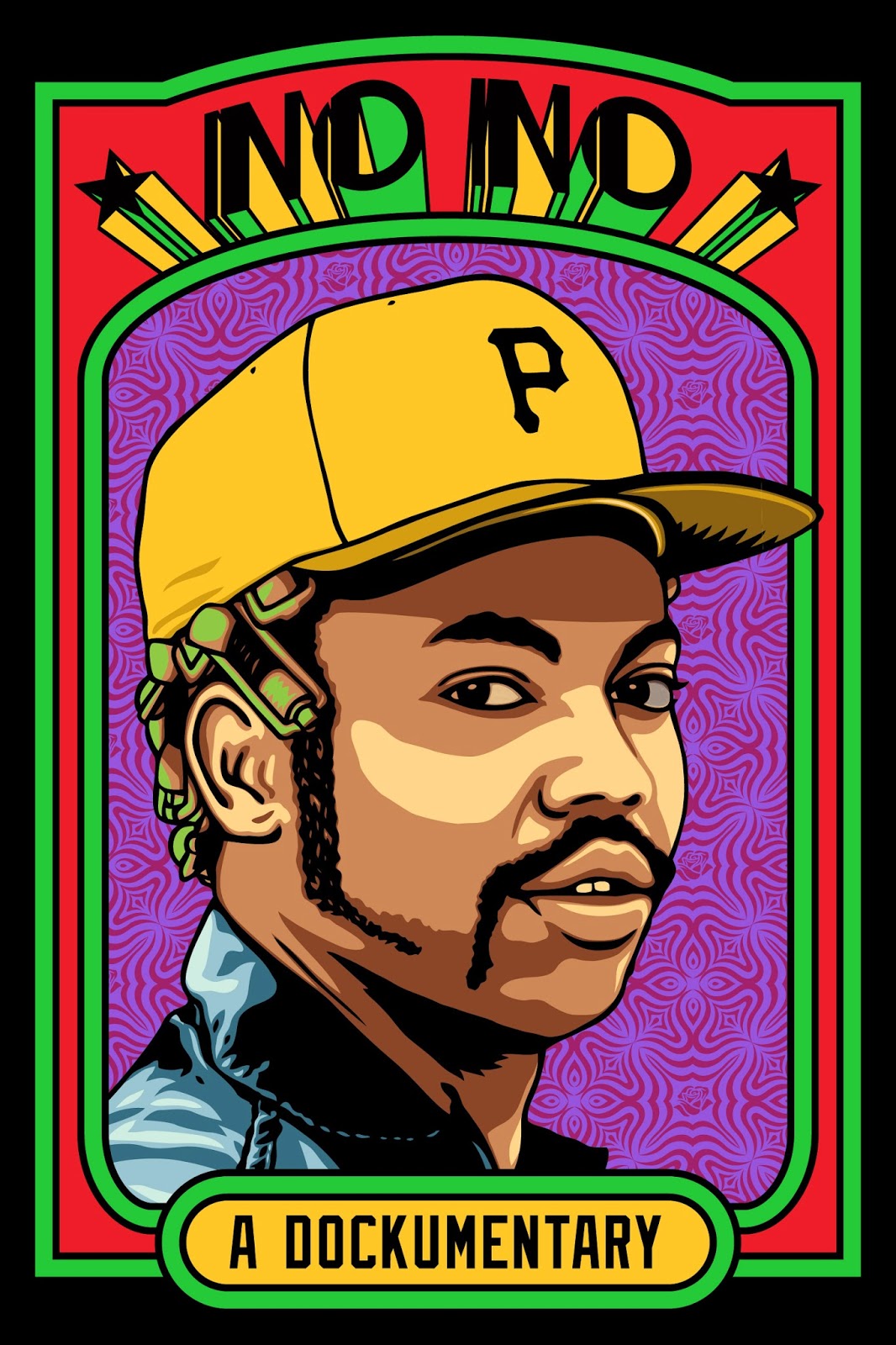(The above is an animated short by James Blagden, and is not featured in the movie.)
Nordling here.
As a movie geek, it's probably easy to guess that knowledge of sports history isn't exactly my forte. Sure, I know a bit, but I'm certainly no expert. I've been to many baseball games in my youth, following the Houston Astros ("Jose Cruuuuuuuuuuuuuuuuzzzz!"), but once I got older and movies became my primary obsession, my dreams of being a professional player went by the wayside. I'd certainly never heard of Dock Ellis, the "Muhammad Ali of baseball", the Pittsburgh Pirates pitcher who pitched a no-hitter that, according to Ellis, was under the influence of LSD. At times he couldn't see the players, imagined people that weren't there, and the only way he could focus was to look at the catcher's hands, which were covered with reflective tape.
It seems a pretty rich character and a ripe story for a movie, and director Jeff Radice mines it for all it's worth, getting stories from the many friends, family, and players that Ellis knew over the years. Ellis himself narrates much of the film in past interviews (Ellis died of liver failure in 2008), and throughout the stories, interviews, and reflections, Radice paints a portrait of a life lived without compromise, even inside Ellis himself. The film is very frank about Ellis's struggles with drugs and alcohol, and I admired the film's ability not to sugarcoat Ellis's darker times, as well as celebrate the happier ones.
During his life, Ellis fought against anyone who would have pre-conceived ideas about him - notoriously wearing hair curlers to warm-ups, or fighting with his own team management, or even half-challenging Muhammad Ali in the Pirates locker room. Ellis often played under the influence of something, whether drugs or alcohol, and Ellis often intimidated other teams, one time infamously hitting every player coming out of the Cincinnati Reds bullpen, including Pete Rose. He was also a fierce advocate for race relations, and he was one of the players in the first all-black professional MLB baseball game roster in history. He also was one of the first players to advocate for free agency and fair salaries for players.
The movie is full of warmth and humor, especially when other players from his various teams share stories about Ellis's life and years playing baseball. Ellis himself is very forthcoming in his interviews about his life; I've always admired when former addicts aren't afraid to tell humorous stories about their years of addiction, because what most films about addiction fail to convey is that much of the time, being on drugs is fun. Why would people use them otherwise? NO NO doesn't shy away from this fact, and the stories about Ellis's escapades on drugs are told with playfulness while not ignoring the fact that these are stories of a man who increasingly struggles with his addictions.
The infamous no-hitter story, as told by Ellis, is especially funny - Ellis claims to have imagined seeing Richard Nixon or Jimi Hendrix at the plate, but he also isn't afraid to tell people that he wasn't proud of it, and that it would mean so much more to him had he done it sober. The movie does not pull punches in regards to his relationships with his wives - one former wife teels the harrowing story of how Ellis terrorized her the night he found he was released from the Pirates for the last time.
But it's Ellis's later work in life, as he defeats his drug problems and reaches out into prisons and addiction programs to help others, that gives NO NO real resonance. Just when the film seems to celebrate Ellis's drug use, a hard dose of reality brings it back down to earth. There are deeply emotional moments in NO NO - the best of which is when Ellis reads aloud a letter that Jackie Robinson wrote him which he can barely read aloud, so moved with emotion he is.
Radice wants to tell the entire story - to share the good times, the funny times, but NO NO also doesn't hold back when tragedy and despair sets in, and the film celebrates in his triumphs inside and outside the field. NO NO: A DOCKUMENTARY is a well-crafted exploration of a complicated man, and a powerful testimony to a man who only truly becomes a hero when he embraces and conquers his demons. This is an outstanding film.

Nordling, out.
